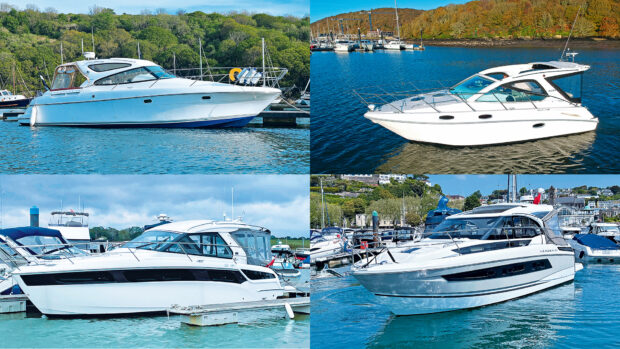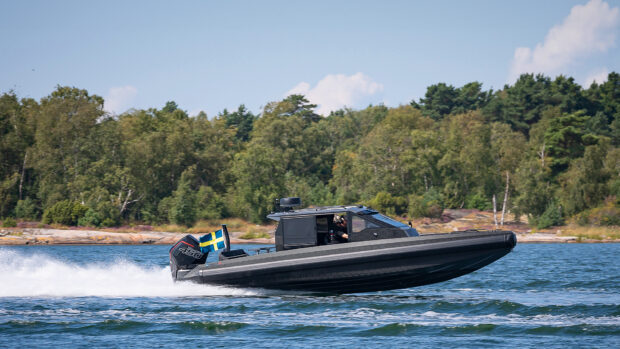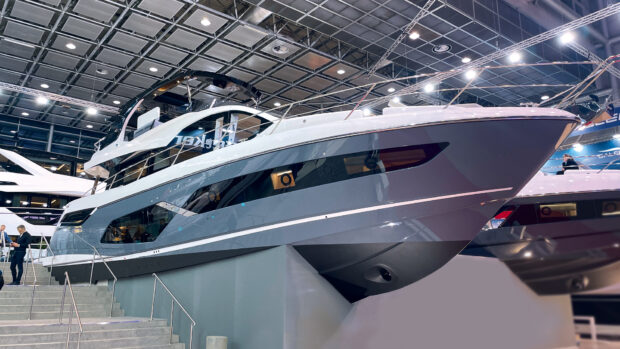Swedish electric boat builder Candela has announced that it has set a new world record by driving its Candela C-8 foiling boat 420nm in 24hrs...
Spurred on by the Voltari 260, which crossed 79nm from Key Largo to Bimini earlier this year on electric power alone, Candela thought they could do even better with their super-efficient foiling C-8.
After partnering up with battery maker Northvolt, they hooked a Candela C-8 up to a Voltpack mobile battery and a Plug charger.
This allowed them to trickle charge the onshore unit between pit-stops, when the Polestar fast-charger came into play.
Cruising at an average speed of 27 knots (compared to the Voltari’s 4-knot crawl) the Candela electric boat took a 18-minute charging break every 45 minutes.
Even allowing for these interruptions, the average speed over a 24hr period was 17 knots.
Of course the team’s circular route from Stockholm to Tynningö and back doesn’t exactly translate into the kind of boating that most of their customers will do.
But Candela claims that this experiment will be replicable in the real world before long, with DC chargers being installed all across the US, Norway and along the French/Italian Riviera.
But perhaps the most exciting discovery was just how much cheaper electric boating is than the internal combustion alternative.
Article continues below…

Candela C-8 sea trial: World exclusive test of a sensational new ‘flying’ electric boat

Best hydrofoil boats: 6 of the most spectacular foiling motorboats money can buy
Candela estimates that their charging sessions used 685 kWh, which would have cost a grand total of €120, compared to the €1,400 worth of fuel that a conventional boat would have used to do the same journey.
“This feat shows that fast, electric waterborne transport over long distances is viable today, not [in] a distant future” says Gustav Hasselskog, Candela’s CEO and founder, who piloted the Candela C-8 during the record attempt.
“With a relatively modest investment, charging stations could be built to fully electrify marine transport in the Stockholm archipelago.
“For a few hundred million euros, a charging network covering Europe’s coastal passenger transports would become a reality.”
”We don’t have to wait for tomorrow,” he added. “We have the technology to shift towards sustainable marine transport now.”
Looking ahead, Candela are planning to apply their technology to the world of commercial vessels, with the 30-person P-12 Shuttle due to launch next month.
Candela C-8 specifications
Length: 27ft 11in (8.5m)
Beam: 8ft 3in (2.5m)
Draft: 4ft 11in (1.5m)
Weight: 1,600kg
Motor: 45-50kW Candela C-Pod
Battery: 69 kWh
Charging: Type 2 AC charging, DC up to 135 kW
Range: 57 nautical miles at 22 knots
Top speed: 27 knots









